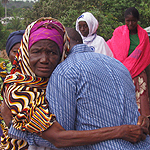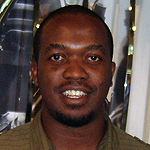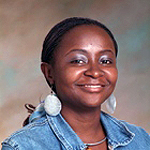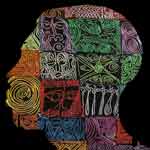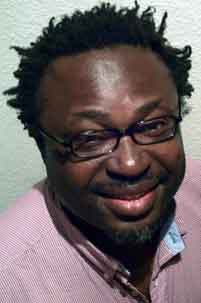Remembering Chris Okigbo: A Conversation with Obi Nwakanma
Nwakanma was educated at the prestigious Government College Umuahia, the English-type boarding school for boys where famous Nigerian writers — Chinua Achebe, Gabriel Okara, Christopher Okigbo, V.C. Ike, I.N.C Aniebo, Ken Saro-Wiwa and others went before him. He earned a degree in English at the University of Jos, the MFA in Poetry at the Washington University in St. Louis and a PhD in English from the Saint Louis University in St. Louis, Missouri. He has worked as a journalist in Nigeria and internationally as Group Arts Editor of the Vanguard and Deputy editor of the Sunday Vanguard. He has also written variously for the American Newsweek magazine, the Neue Zurcher Zeitung (NZZ) of Zurich and the Independent in South Africa. Often described as the most gifted of his generation of poets in Nigeria, Nwakanma who writes a famous weekly column in the Sunday Vanguard, The Orbit not only writes recondite poetry, but he is also a versatile literary critic. His short story The Image Maker has recently appeared in Wasafiri. He has completed two new books of poems, Birthcry and The Stone Fragments and is currently working on a full length novel and a Play. Obi Nwakanma’s book of poems Horsemen & Other Poems was published by the Africa world Press in 2007. James Currey/ Boydell & Brewer in Oxford has also just published Christopher Okigbo: Thirsting For Sunlight, his long-awaited biography of the Nigerian poet Chris Okigbo who died fighting in Biafra. Dr. Nwakanma currently teaches Creative Writing and 20th Century Transnational Literatures at Truman State University in Kirksville, Missouri.
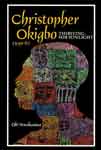
AFRICAN WRITING: As we begin this conversation, your country is mourning the recent death of three writers... do you have personal memories and thoughts on the passage of these compatriots, and the work they left behind?
Obi Nwakanma: Two very shocking deaths. The third, of T.M. Aluko should be a celebration of a long and well-tenured life. Although, every death creates emptiness, T.M. Aluko’s death we can tolerate. But the passing of Ossie Enekwe and Esiaba Irobi cuts too deeply, personally for me because both were friends of mine, and particularly with Enekwe, I owed some unpaid moral debt.
He had invited me to Nsukka as a Fellow of the Hansberry Institute in 2000 when he was Director of the institute and he gave me a space to work. He had also invited me to the editorial board of Okike of which he was editor. I did not keep as close in touch with him as he much would have liked. But it so happens that we often think of people as permanent — always there because we get comforted by the easy familiarity of their presence until death anounces itself. Esiaba died exactly a year to the very date of my own father’s passing. So, you see, May 3 leaves an awkward sign for me. Esiaba and I spoke on the phone, the very last time sometime in February, when he gleefully announced to me, in his very words ‘my great happiness.’
He said he had never been happier in his life because of the love he had found in a woman — Uloaku — and I even told him I would drive down this summer to visit him in Ohio. He has visited and stayed with me on a number of occasions in St. Louis, and we thought it was my turn now to pay the visit. The shock of Esiaba’s death is indescribable, not because I thought he would not die, indeed, I feared that death hung around him since the death of Lisa Colbert, a brilliant theatre director, and a mutual friend with whom he had love interests and since he was diagnosed with pharyeangal or throat cancer from which he was undergoing chemotherapy the last time he visited me in St. Louis while working on a play on Chinweizu with the famous black director Ron Hines. It is just that Esiaba had a great, lively presence; one of those intensely present individuals who filled a room in spite of their small, taut build. Esiaba was like that.
I would remember him mostly as a thoroughly angry poet and playwright. Yes indeed. Esiaba’s deep anger and frustrations about the failures of his world were resonant in his poetry and his plays, from Cotyledons to Why I don’t Like Philip Larkin or his plays from Nwokedi to Hangmen Also Die which ironically was prophetic in its foreshadowing of the Ogoni situation. Esiaba died in exile. He saw himself as an exile, and it is within the context of exilic memory and rememory that I’d fix his later output, which brought to bear clearly, his reliance on the curse rhetoric - the ‘yo mama’ language. Even now, Esiaba’s laughter rings in my ears when I remember his great amusement from a line in my on-going sequence of poems, Indigo Street where I had said, ‘America is a great vagina.’ He said ‘kponkwem!’ and roared in laughter in the inimitable Esiaba way. I mourn him. I mourn them all.
 : Esiaba Irobi did leave foot prints in the fourth issue of this magazine, with his four poems in AW4. They will all be missed. For your own part, for many years you have been involved in a major biography project to take the measure of another late compatriot of yours, the iconic Christopher Okigbo. It comes to fruit this year, ‘finally!’ as many of your friends will sigh. What is this project all about?
: Esiaba Irobi did leave foot prints in the fourth issue of this magazine, with his four poems in AW4. They will all be missed. For your own part, for many years you have been involved in a major biography project to take the measure of another late compatriot of yours, the iconic Christopher Okigbo. It comes to fruit this year, ‘finally!’ as many of your friends will sigh. What is this project all about?
Nwakanma: Well, Thirsting For Sunlight has just been released by James Currey/Boydell and Brewer out of Oxford. Boydell and Brewer is releasing the American edition soon, while arrangement is being made with Heinemann Nigeria to bring out the paperback edition in Nigeria soon too. Yes, Thirsting for Sunlight is finally off my chest.
I have been working on this biography for a long time, since 1988 in fact, and I do see why many of my friends and readers will sigh in relief. I have inundated their ears with Okigbo beyond patience. At some point, a friend of mine, the philosopher and poet, Sanya Osha called from South Africa and said, ‘Obi, the only reason I’m calling you is about this Okigbo book. When is it coming out?’ Well, imagine that! He did not call to ask about my tired liver, or about my family, or about my sex life, just about Okigbo! So, you see, even I got the rap.
There were some who thought the Okigbo book was part of my capacity for myth-making. Well, in part, it is. It is an attempt to place in perspective the life of a poet and a myth-maker. It is a search, not for absolute verities, for no truly lived life can be composed in absolutes, but for those significant moments that have shaped the imagination and context of Okigbo’s life and thus his poetry. I have pointed out that Okigbo’s poetry in itself is an autobiographical quest; a search by a deeply sensitive poet who masked his profound anxieties by a remarkable form of public exuberance. He lived beyond that exuberance in his poetry, and that struck me from my very first reading. I was also struck by Okigbo’s revolutionary spirit; his repossession of a cultural imago by walking through the alien routes made possible by his classical education. So, in sum, Thirsting for Sunlight is a project of recovery, not simply about Okigbo, but also about a vanishing time and a disappearing generation. That generation that Achebe has described as those born at ‘the crossroads of cultures.’ I wrote about Okigbo, in part, as a way of understanding that crucial moment of Africa’s modernity and the complex realities that shaped both the individual poet and the community or the world out of which his cries suspire.
(Editor's Note: The full text of this interview is available in the 110-page print magazine, which can be downloaded here)...
Copyright
© African Writing Ltd & respective copyright
owners. Enquiries to permissions(at)african-writing.com.
![]()

